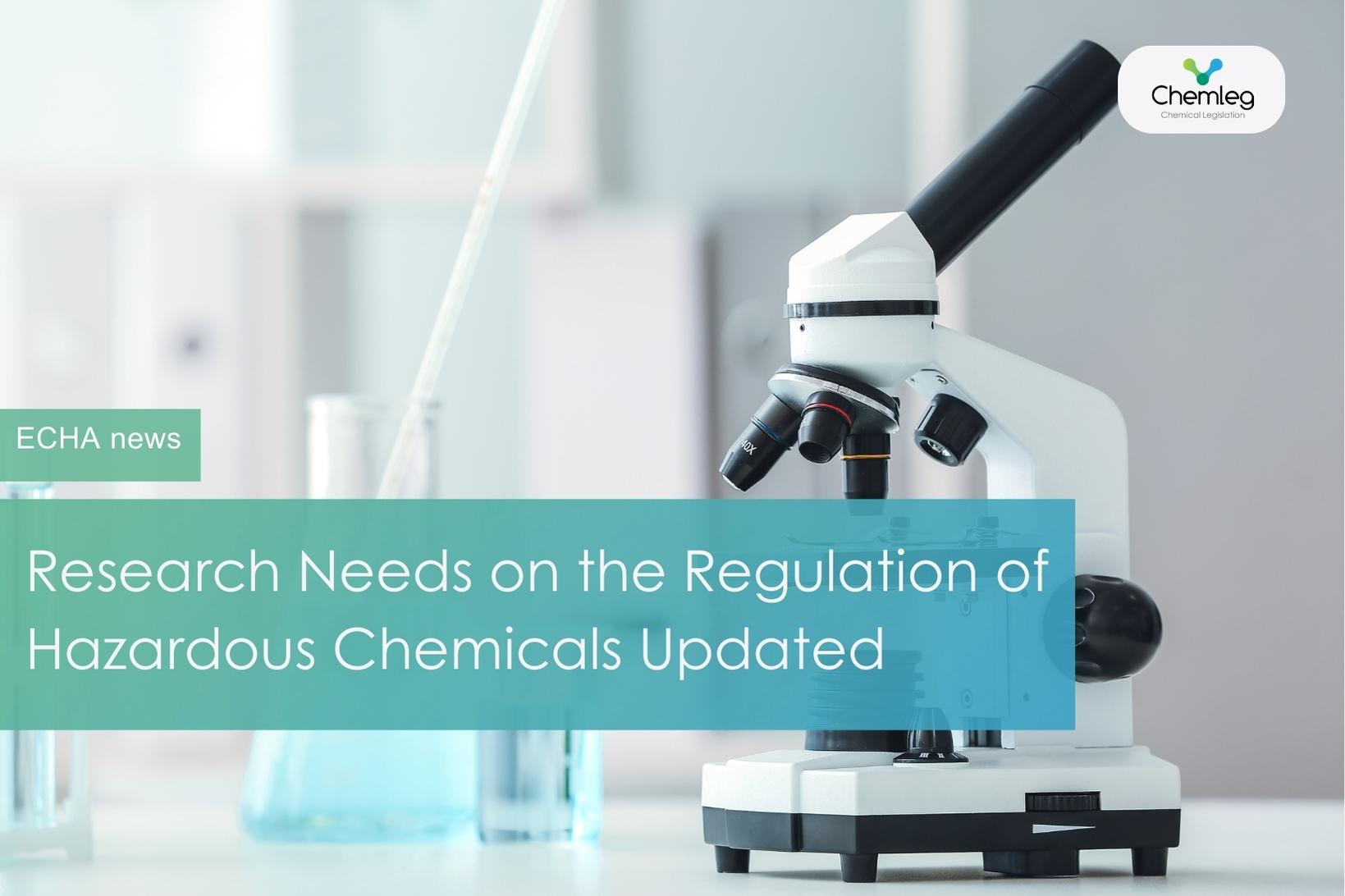
Research Needs on the Regulation of Hazardous Chemicals Updated
The European Chemicals Agency (ECHA) has updated its report on the main topics of research.
The report now provides more detailed information on areas where scientific research is necessary to protect people and the environment from harmful chemicals.
In order to support the regulation of hazardous chemicals in the European Union, it is essential to increase scientific research and develop related methodologies. ECHA has identified the key research needs in 2023. This initiative is part of the agency's efforts to tackle the main challenges encountered in regulations under the PARC framework.
Within this scope, ECHA has indicated that further studies are needed in the following areas:
- Protection against the most hazardous chemicals: Neurotoxicity, Immunotoxicity, and Endocrine disruption;
- Addressing chemical pollution in the environment: Bioaccumulation, evaluation of NBP's (Non-bee pollinators) sensitivity to biocides, expanding biodiversity protection using New Approach Methodologies (NAM), and new approaches for monitoring chemicals present in the environment;
- Shifting away from animal testing: Cross-reading and NAMs, in vitro/in silico absorption, distribution, metabolism, and excretion (ADME), and Physiologically Based Kinetic (TK) Models, short and long-term fish toxicity, and carcinogenicity; and
- Improving availability on chemical data: Polymers, micro- and nano-sized materials, and new analytical methods for enforcement.
ECHA’s Executive Director Dr Sharon McGuinness stated that the report was updated to provide more detailed information on topics lacking research. She also added that they expect the research community to respond positively to this call.
This update, which aligns with ECHA’s strategies for 2024-2028, aims to support alternative methods for evaluating hazards and risks of chemicals and to expand chemical safety knowledge.
This article was originated from ECHA.
